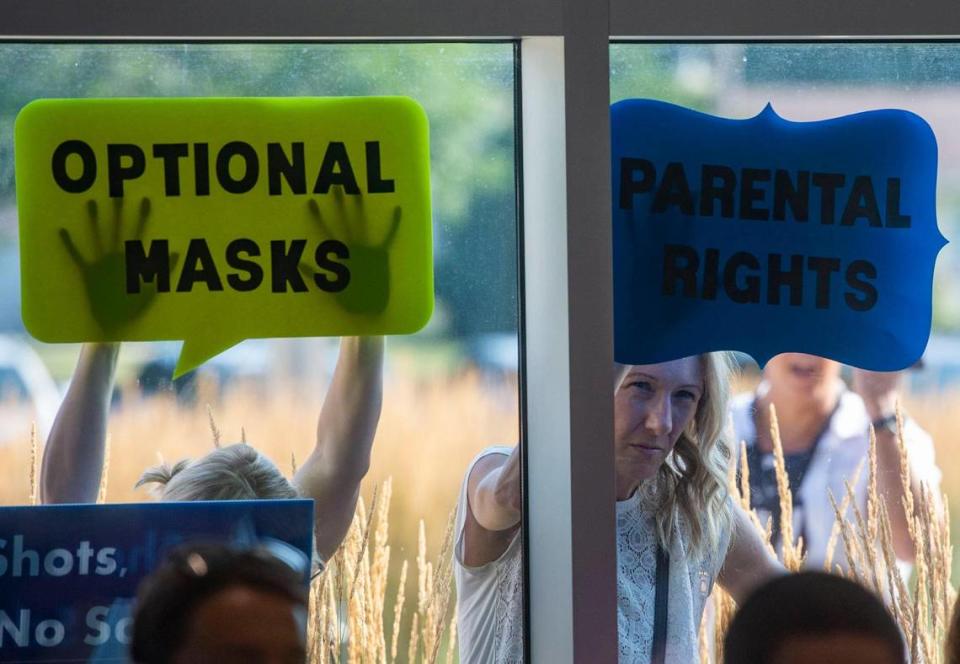Judge weighs Kansas COVID-era emergency response enforcement as attorney general appeals

A Johnson County District judge will decide Tuesday whether to insist that his ruling, which strikes down restrictions on local health officers, stays in effect pending an appeal.
The stakes surrounding the case have risen significantly since Judge David Hauber first heard the matter on June 10. Should he refuse to grant a stay, local health officials and Gov. Laura Kelly could take advantage of restored powers to respond to the new surge in COVID-19 cases driven by the delta variant.
Kelly could declare a new state of emergency and local health officials could issue capacity limits and order business closures or mask mandates without approval from local governing bodies. An appeals process residents used to challenge school mask mandates this spring would not be available.
On July 15 Hauber struck down sweeping changes in the state’s emergency management law, enacted by the Kansas Legislature in response to backlash from COVID-19 related restrictions.
The changes in Senate Bill 40 expanded Legislative review of Kelly’s emergency powers, prevented local health officers from issuing orders without approval from the local governing body and created a process by which any member of the public “aggrieved” by a public health measure, such as mask mandates or business closures, could challenge it in court.
Hauber ruled that time limits imposed on courts to rule violated due process for the government entities and separation of powers between the Legislative and Judicial branches of government.
Because the Legislature ignored the role and procedures of the court when drafting the law, Hauber ruled, the entire statute was unenforceable.
Last week Kansas Attorney General Derek Schmidt requested a stay that would prevent the order from being enforced until after his office had completed its appeal. Following arguments in a hearing Tuesday, Hauber said he would issue an order by the end of the day
But it could be months before the Kansas Supreme Court renders a final ruling on the matter.
Hauber’s ruling in early July effectively returned wide ranging emergency powers to the hands of local health officials and Kelly as COVID-19 cases are again rising in Kansas, powered by the delta variant. Last week KC area hospital officials called for a return to mask mandates to reduce the spread of the virus.
In Tuesday’s hearing, Solicitor General Brant Laue argued on behalf of the Attorney General’s office that Hauber had created confusion by striking down several laws unrelated to the complaint against the Shawnee Mission School District’s mask mandate that prompted the ruling.
The elimination of changes to the emergency management law, such as the range of Kelly’s powers, left open the question of what state law will apply to future emergencies, Laue said.
“What fills the gap to SB40 having been declared unconstitutional,” Laue asked. “Would the state of Kansas have a full toolbox to respond to that kind of emergency?”
Rachel England, attorney for the Shawnee Mission School District, said a stay was an overly broad solution to that confusion. Staying Hauber’s order, she said, would once again make the district vulnerable to lawsuits and time frames deemed unconstitutional.
“If (Hauber’s) order is stayed it would open the door for additional constitutional violations to occur and given where we are … there is a real possibility that we have another state of disaster emergency declared,” England said.
The district’s board of education voted this week to require elementary students to wear masks when they return to class in August.

 Yahoo Finance
Yahoo Finance 